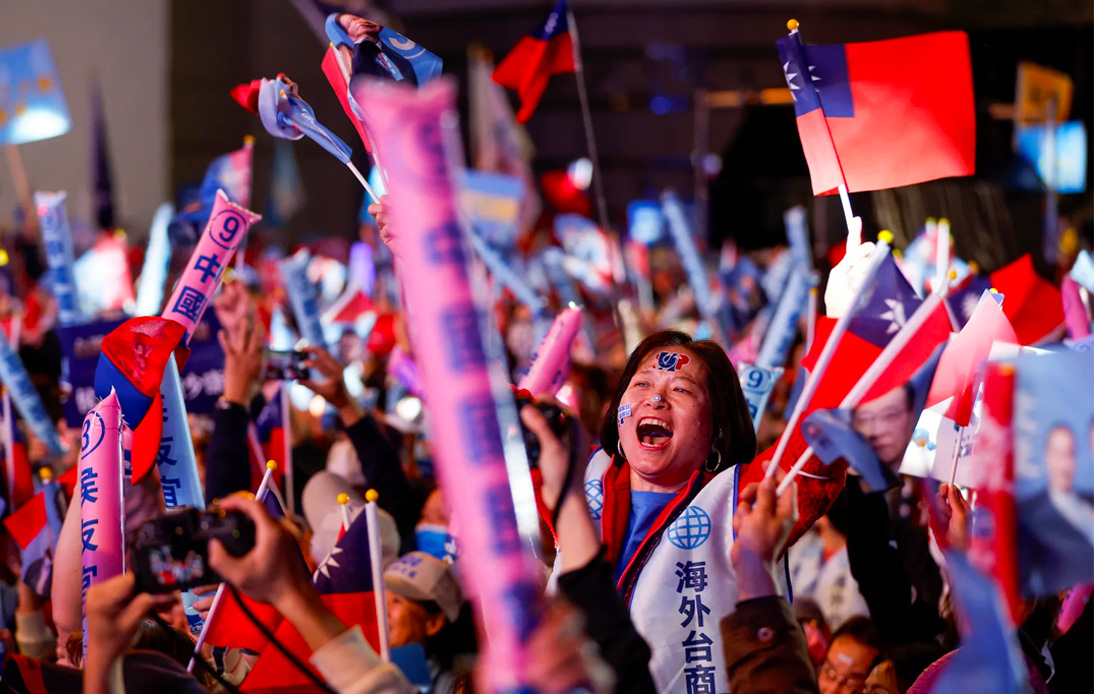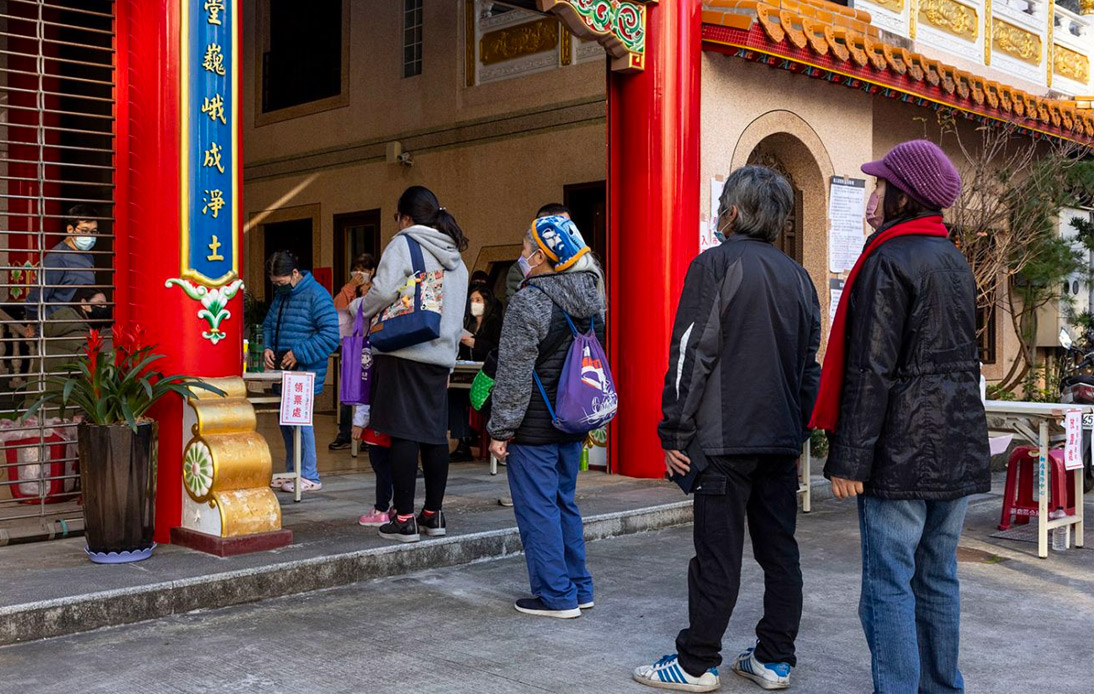
Polling began on Saturday in Taiwan for the presidential and parliamentary elections, during a period where China framing the event as a choice between war and peace, and intensifying pressure on the island to acknowledge its sovereignty.
Since its first direct presidential election in 1996, Taiwan has emerged as a model of democracy. This transition to democracy was the result of a long fight against authoritarian governance and martial law.
The ruling Democratic Progressive Party (DPP), known for advocating Taiwan’s distinct identity and opposing China’s territorial claims, is vying for a third term. Their candidate is the current Vice President, Lai Ching-te.
Before casting his vote in the southern city of Tainan, Lai spoke to the media and urged citizens to participate in the electoral process.
Lai emphasized the significance of each vote in Taiwan, acknowledging the hard-fought achievement of democracy.
In the lead-up to the election, China has consistently criticized Lai, labeling him a separatist, and has ignored his repeated overtures for dialogue.
Lai maintains his commitment to maintaining peace in the Taiwan Strait and enhancing Taiwan’s defense capabilities.
On Saturday morning, Taiwan’s defense ministry reported observing Chinese balloons crossing the sensitive Taiwan Strait, including one that flew over Taiwan.
The ministry condemned these incidents as psychological warfare and a threat to aviation safety, noting several similar occurrences over the Strait in recent weeks.
Lai faces two rivals in the presidential race: Hou Yu-ih from the Kuomintang (KMT), Taiwan’s main opposition party, and Ko Wen-je from the relatively new Taiwan People’s Party (TPP), which was established in 2019.
Hou advocates for renewed engagement, starting with interpersonal exchanges, and like China, accuses Lai of endorsing formal independence for Taiwan. Lai, in turn, accuses Hou of being pro-Beijing, a claim Hou denies.
Ko, who has garnered significant support from young voters, focuses on practical issues like housing costs. He too seeks engagement with China, but insists it shouldn’t compromise Taiwan’s democratic values and lifestyle.
After voting at a Taipei high school, Ko reported feeling calm and said he had slept well the previous night.
The parliamentary elections are crucial, particularly if no party gains a majority. Such a scenario could hinder the new president’s legislative and defense spending initiatives.
“Compared to previous elections the result this time is very difficult to predict,” said Liao Jeng-wen, 44, a financial sector worker who voted early on Saturday.
“Taiwan’s next leader should think of ways to peacefully get along with China … many Taiwanese think we should maintain the status quo.”
The polls, which are open for eight hours, are set to close at 4pm local time. Ballot counting, done manually, will commence immediately. No electronic, absentee, proxy, or early voting is available.
The election outcome is expected to be apparent by late Saturday evening, following concession speeches by the defeated candidates and a victory address by the winner.
President Tsai Ing-wen, having served two terms, is constitutionally ineligible to run again.





















